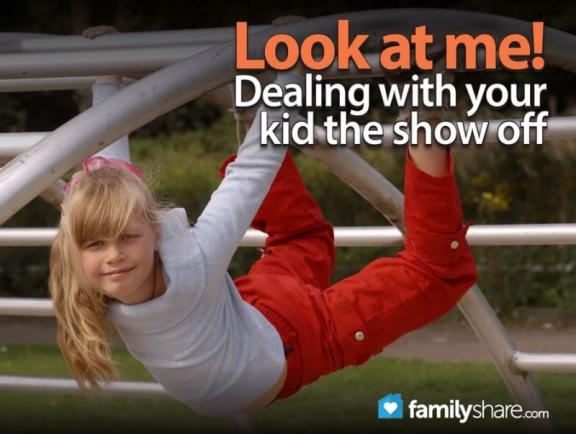
Are you the parent of that kid? The one who's always seeking attention by dancing, singing, being goofy or otherwise stealing the show? My son is occasionally bored in the goalie box in soccer, and has been known to practice his dance moves when the action is on the other side of the field. There are places and situations where junior's little performance isn't appropriate, and times when other people deserve attention. Help curb your child's need for an audience with these simple tips.
Explain humility and teamwork
This concept is applied best to sports, but can work for general situations as well. If your child is constantly demanding the limelight and attention, causing other children to be ignored or unable to participate, have a positive and informative conversation about character traits like humility and teamwork. A short talk should suffice, and have it more than once if needed.
Stay positive
You don't have to drown your child in compliments about his or her abundant talent, but be positive in discussing his enthusiasm. Children are very much affected by the words adults say to them. If people are annoyed by your child's behavior, pull him aside and speak to him quietly. Small children might not understand when it's appropriate to sit and let others take the stage. Older children will remember your reaction. If it's something like, "You've embarrassed me and yourself,"� he might be ashamed or discouraged. Instead, try saying something like, "It's not your turn to be in the spotlight tonight, so come and sit with me."�
Set limits
If your darling diva has planned an elaborate dance number for you and your family to enjoy, sit down and watch it. Show interest, applaud heartily and thank her for sharing with you. You can decide if you have time to watch again. If you truly can't spend more time, don't let her coerce you into giving her more attention.
Find a willing audience
If your child wants to show off, find someone willing to watch. Grandma or grandpa might be good at this job, or consider a younger sibling. Immobile babies are a captive audience. If no living thing (pets included) is available, try setting up a stuffed animal audience and a stage. I learned years ago that certain kids love to perform to any audience, real or pretend.
Don't give into demands
Every parent has heard the phrase, "Watch me,"� more times than they can count. Watching a child do a new trick a few times is reasonable. Watching the same trick repeated for thirty minutes is not. Curb "watch me"� demands by saying something like, "I'll watch two more times, and then I'm going to play with your sister for a bit."�
Turn the tables
Often show offs seek praise. Teach your child that her opinion of herself matters most. Ask her how she thought the dance performance went, what she likes about the picture she drew, or how she feels when she scores a goal in soccer. In time the praise-seeking child will learn to find satisfaction from inside.
Channel his talent
If you've got the next American Idol on your hands, turn your child over to the pros. Sign him up for singing and dancing lessons. Some studios even offer a "rock star"� like experience. If your son or daughter is a sports phenomenon, seek out extra clinics and good coaches that can help him or her combine talent with practice to develop new skills.
Most show offs grow out of their demand for attention, and most other people don't mind watching your kid ham it up. Downplay show off tendencies and curb spontaneous attention-seeking in simple, positive ways. And don't forget to video some of your child's great performances. The day may come when you miss seeing your little show off strut his stuff.

